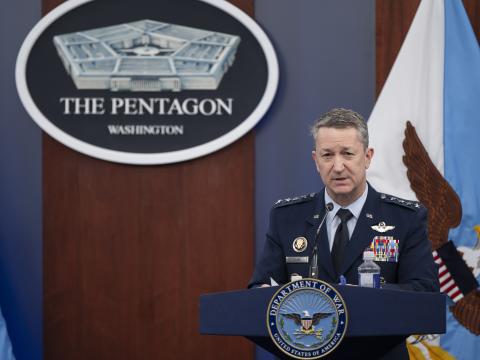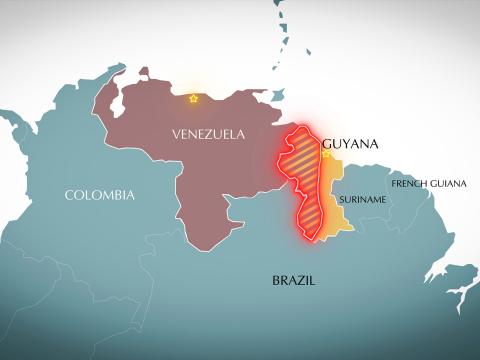President's Commentary: Put the Civil Back in Civil Discourse
In a rapidly changing and dynamic world, we are lacking a most important ingredient for policy making: honest, constructive political debate.
In a rapidly changing and dynamic world, we are lacking a most important ingredient for policy making: honest, constructive political debate. Civil discourse, in which responsible and thoughtful people discuss proposed policies and events based on facts, logic and reason in an atmosphere of mutual respect, has all but disappeared. It is being replaced by one-sided, confrontational politics wrapped in narrowly focused biases that give no quarter to opposing views. Emotion and deception have ousted integrity and truth. Moderate voices are being driven to the sidelines or silenced altogether.
The need for educated, frank discussion and debate is stronger than anytime in recent history. Public opinion is often stifled or reduced to highly compartmentalized single issues where noise and intimidation overwhelm reason. When credible thought leaders attempt to introduce meaningful ideas based on logic rather than emotion, they are frequently shouted down or personally discredited, both figuratively and literally. Anyone offering an intellectual point of discussion risks having an opposing side ruthlessly attack that view and himself or herself through a plethora of mechanisms. All manner of media, ranging from radio to cable TV to social media to unfavorable newspaper accounts, has become the weapon of choice. This often intimidates and represses important discussion.
Dishonest, unethical and deceitful politics are dominating the news cycle, and they are sweeping away any semblance of meaningful and honest dialogue between differing factions. Attention is being drawn to both extremes of the political spectrum to the detriment of the majority and has laid the foundation for what has been referred to as a “cold civil war.” Truth has become difficult to discern and too often ignored.
Instead of sitting down and presenting solutions based on well-founded and developed ideas that support the public interest, politicians and media pundits are shouting lame insults at one another intermixed with misinformation, disinformation and deception. The credibility of elected officials has been deeply tarnished. There is often little or no depth to the views today’s partisan thinkers present in open forums. Cable news, which plainly promotes political positions in its coverage, often offers ill-informed, heavily biased perspectives in sound bites of two minutes or less. Adding to the challenge is the mass availability of social media and its ability to transmit differing opinions to an audience unable or unwilling to separate fact from fiction. Bias and speed of message delivery have trumped honesty and truth. Taking the words of Irish satirist Jonathan Swift, “Falsehood flies, and truth comes limping after it.” In many ways, the media, which has traditionally received special status in our democracy, has let us down. Information has been highly weaponized within our own democracy. Truth and accuracy are the casualties in this war of words.
Rhetoric, rancor, emotion, deceit and lies are not new to public discourse. History is rife with examples, from the days of ancient Greece to modern free-world elections. Diogenes, the ancient Greek philosopher, allegedly walked the streets of Athens with a lantern, seeking an honest man. In our relatively short history, the United States has many examples of this polluted political discourse—witness the elections of 1800, 1828, 1890 and 1932, to name a few. The black-or-white, winner-or-loser format that defines today’s political debate must be rolled back to permit true thought leaders to be heard and their views freely and openly reported and discussed.
Bringing critical discussion back to the public forum will not be an easy task. The public must actively and aggressively refuse to accept being subjected to deceitful, emotional slogans and instead demand more thoughtful points of view from leaders and the media. Our schools must teach acceptance of differing opinions and critical analysis of thoughts and ideas and restore civics as a core foundation of education. Our political leaders must tone down the rhetoric and instead engage in factual and honest debate. They must be held accountable for the truth. Can there be anything more threatening to democracy and national security than the truth ripped apart from within?
The path to the future is far from clear. Many vital issues of the day—national and international security, social reform, famine, global warming, transnational crime, unlawful drug trade, energy use, resource allocation and international law—are not being presented in a manner the public deserves and should expect. This is a time for authentic, meaningful discourse, not for manufactured deceit and distrust.
Where does one go to find honest, reasoned debate? Where does one go to find the truth? I wonder how Diogenes’ quest would fare in this troubled environment.




Comment
Bravo Gen Shea, great blog.
Bravo Gen Shea, great blog. Thanks for stepping out and presenting this crucial issue in a very straightforward and logical fashion. We desperately need courageous leaders who will take a stand for civility and reasonable discourse. The current vector is taking us toward tribalism and a mindset of "the end justifies the means" and the means are getting meaner each day.
Lt. Gen. Robert M. Shea has
Lt. Gen. Robert M. Shea has found clear and true words for the current situation. And yes, he also chose his words very wisely.
Thank you.
Comments